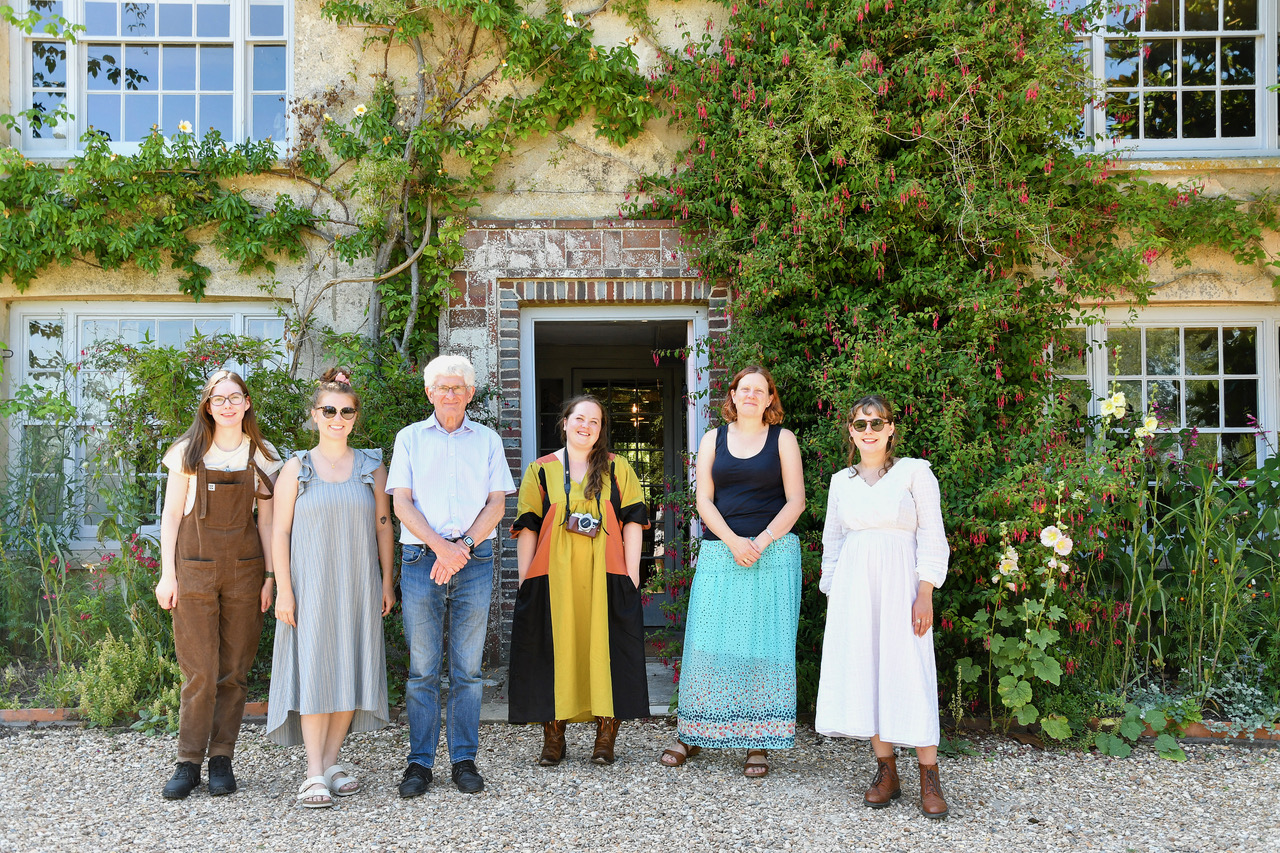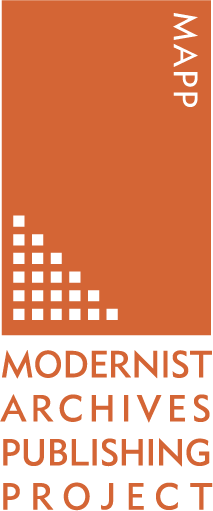As a graduate student at the University of Texas at Austin, I’ve been lucky enough to work at the Harry Ransom Center on UT’s campus for the past two years. In my time there, I’ve been a member of the reference team, and my day-to-day tasks usually involve fulfilling digitization requests for remote patrons, providing support to researchers in our reading room, and leading instruction sessions for visiting students. For the past year, though, I’ve also functioned as a representative for the HRC on MAPP.
The Harry Ransom Center at UT Austin; the MERL/University of Reading Special Collections.
The HRC has been a library partner to MAPP since 2018, and various staff members have helped provide scans and metadata for material in our collections for inclusion on the MAPP website. I took over for the most recent representative, another UT grad student named Kristen Wilson, in the summer of 2022. Over the past year, I’ve helped get Kristen’s scans and metadata for material from the William A. Bradley Literary Agency Collection online, attended the MSA conference to speak with other MAPP team members on a panel, and worked on improving processes and procedures for the HRC to continue contributing to MAPP over the years. My MAPP experience culminated this summer in a visit to the University of Reading’s Special Collections (co-located with the Museum of English Rural Life), where staff members graciously invited me into the stacks, the reading room, the museum galleries, and their offices to learn more about their work.
This trip fulfilled the second half of an exchange between the HRC and the University of Reading Special Collections—last summer, Helena Clarkson, the project archivist for MAPP, visited the HRC in Austin. Although Texans pride ourselves on our hospitality, I have to say that I do think the UofR/MERL staff outdid us! Caroline Gould, the principal archivist, carefully and thoroughly planned two weeks of activities and meetings for me. I was able to explore many different areas of the collections: I rehoused material in one of the Penguin Random House collections, helped pull and reshelve material for patrons in the reading room, assisted with an instructional session, cataloged material in an art collection, took a stab at the very first steps of processing a collection, observed a regional meeting of conservators, and digitized materials related to MAPP. I was especially glad to assist with some of the Learning and Engagement and Public Programming endeavors—at the HRC, I primarily work with remote patrons, so it was a refreshing change of pace to meet face-to-face with people, and especially with children. I helped with the museum’s Friday Fledglings program, which provides space for outdoor activity and learning for families with young children, and participated in the Care4Calais program, which similarly offers activities and learning opportunities for the communities of refugees settling in Reading. This is not to mention the second annual meeting of the Bookselling Research Network, which I was able to attend in part. Although it reads here like an incredibly full two weeks, it was, in fact, a perfectly pleasant introduction to the collections at MERL and the UofR, which are all fascinating and exciting, and which I could’ve spent a lifetime learning about.
Rehoused manuscript material; my view in the conservation lab as I rehoused photographs. Photos by Kayleigh Voss.
My trip ended with a visit to Charleston House with Nicola Wilson, Helena Clarkson, and a group of volunteers who contribute to MAPP’s transcription project. I couldn’t have imagined a more charming and fitting bookend to my visit than wandering the gardens and perusing the bookshelves of Vanessa Bell and Duncan Grant’s country home.
MAPP team members at Charleston House. Photo by Emily Mathias.
Thank you to Caroline Gould, Helena Clarkson, and Nicola Wilson—as well as the rest of the MERL/UoR Special Collections staff and volunteers—who made my trip not only exciting and memorable, but educational and practical. I graduated this past June with degrees in English literature and Information Studies, and I look forward to continuing my education in the fall as I pursue a PhD in English literature. My experience both at the Harry Ransom Center and at the University of Reading prepares me for a future career in special collections, where I’ll continue to support the use and appreciation of special collections of all kinds, whether through digital projects like MAPP, in-person engagement and instruction, or remote reference work.




